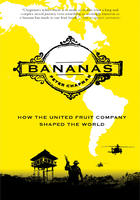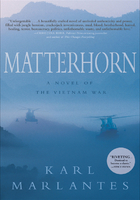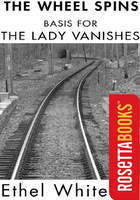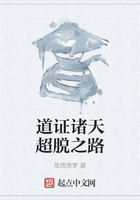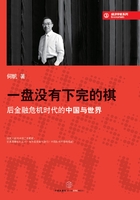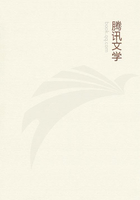Here's an idea: Pretty soon after we have babies, let's use machines to extract breastmilk from our bodies several times a day while we are working demanding jobs. Let's do this when we are already exhausted, anxious, stressed, and overwhelmed-and trying to prove to our employers that we're "back."
Who on earth would do this? Well, for starters:
· A police officer: "I pumped in the car at a site where I was helping to recover the skeleton of a murder victim from a creek bed."
· A teacher: "I've been walked in on twice, despite displaying do-not-disturb signs. Both were male. One backed away slowly. The other stayed to chat."
· A communications director: "I'm limited to thirty-minute pumping sessions, so I often have to leave in the middle of an hour-long meeting and call in for the remainder."
· A doctor at a hospital: "I had to pump while answering pages, talking on the phone, or eating lunch. Once, I forgot my bottles and had to pump into urine collection cups. I swear they were sterile."
·…and me. I'm a working mother of two, and when I had my first baby, working and breastfeeding became one of the most difficult experiences of my professional life.
Continuing to breastfeed after I returned to work was something I really wanted to do. But it also produced more anxiety and guilt and feelings of being overwhelmed than any other part of parenting. It was a very physical job in the midst of an already physically trying time in my life-the lugging of equipment and milk, the running between meetings and pumping sessions, and the finding of private places in which to pump.
It was also an emotional job, filled with second guesses. It was time-consuming, draining (literally), anxiety-producing, and stressful. Being someone's sole (or main) source of nutrition is hard work.
It was rewarding, too, and I did it as best as I could. I was the first woman to have a baby at my company, so I had no precedent and no mentors at the office. I did about a dozen domestic and international business trips during the nine months I breastfed my son. I pumped in storage closets and on airplanes and in far-flung locations in developing countries. I fought TSA agents over my frozen milk. I stared at photos of my son while pumping, trying to force my body to produce just a little more milk. I spilled tears onto those same photos. I also brought that milk home with a sense of pride and relief every day.
I counted every single ounce I made and stressed about my son "beating" me by eating more than I had pumped in a given day. I did all of this for nine months, and then I woke up one day and just knew there was no more gas left in the tank. So I stopped.
The hows of working and breastfeeding are many, and can be overwhelming and confusing: how to build up a stash of milk, how to find work-appropriate clothes you can pump in, how to talk to your boss about your needs, how to commandeer and hack virtually any space to pump in-a huge pile of hows that no one ever bothered to jot down for us "triple threat" mothers (worker/parent/milk-maker).
In a world overflowing with more parenting books and Pinterest boards and mommy blogs than you can shake a positive pregnancy stick at, why is the Motherhood Industrial Complex failing us when it comes to breastfeeding in the working world? There are stacks and stacks of books to tell us how to get pregnant, be pregnant, birth a baby, nurse a baby, sleep train a baby, follow its development on a moment-by-moment basis, and raise a child. These books are filled with opinions (often conflicting) on the right and wrong ways to do all of these things.
But many of these same books gloss over how hard breastfeeding is. And working and breastfeeding? That gets a paragraph, if you're lucky. Just look at the covers of most breastfeeding books and you'll see a drawing of a mother, still in her bathrobe, cuddling her baby at her breast. For working mothers, that image might work in the first couple of weeks (especially the bathrobe part), but the long-term reality looks more like hiding in a storage closet with a breast pump, or stirring a pot of food while on a conference call while trying to breastfeed a baby while kicking (gently! lovingly!) at a toddler to get out of the kitchen. This makes for a busy book cover, but it's the truth.
I think a big driver of this problem is that so much of breastfeeding education is focused on those early days and weeks, when breastfeeding is often confusing, painful, and exhausting.
The relatively new phenomenon of lots of women heading off to work with breast pumps in tow is just not covered in the same way by the breastfeeding literature. Many breastfeeding professionals I interviewed shared that pumping at work is an underserved area for the lactation community, and that was a major motivation for me to write this book.
What You'll Find in This Book
For me, other working mothers have been the only source for practical, honest, and funny information about how to breastfeed and work. Only they have the war stories and the insightful insider tricks. Only they truly get the guilt, pressure, and anxiety that breastfeeding and work can add to the already stressful situation of going back to work. And only they can laugh about the whole thing, when nobody else in the world seems to find any of this even remotely funny.
So, what I offer you, modern mama with too much on your plate, is a straight-to-the-point resource that will complement the essential breastfeeding stuff that's already out there.
I'm not going to tell you about football hold or proper latch or give you a cookie recipe to increase your milk-all of that exists, and you really ought to read it. What I will give you, because I couldn't find these things anywhere else myself, are as follows:
· Practical tools for the situations working, breastfeeding mothers find themselves in: the gear, the tricks to navigate the workplace, the coping strategies.
· Insight into your rights and responsibilities at work, and advice on how to approach your employer on this subject.
· Stories from other working moms to make you laugh, cry, or cringe (maybe all three); to help you navigate your situation; and to remind you that you're not alone.
· Tactics to balance a busy schedule with the demands of pumping.
· Honest, nonjudgmental support for the feelings of anxiety and pressure that are so common to working breastfeeders.
This advice comes straight to you from my own experiences and the experiences of hundreds of other working mothers-plus some human resources (HR) professionals for additional perspective.
In writing this book, I took working mothers out to lunch; talked to them over the phone, email, and Skype; and asked the question, "What was breastfeeding and working like for you?"
They cried; I cried. We laughed, and peed our pants a little, in true just-had-a-baby style. Many told me that breastfeeding was, for all of its ups and downs, a really positive experience. They were amazed at what their bodies could do. They loved that they could still do something for their babies when they were at work. And they treasured reconnecting with their babies when they got home from a long day or a long trip.
I felt honored that they would share their stories with me. In this book, you will find the collective wisdom of these women.
These women are practical. They are goal-oriented. They've worked hard to try to provide their babies with breastmilk. Some have done it for months or years, others for days or weeks.
Most of these women struggled with breastfeeding and working, but almost all felt pride at giving it their best shot. They all deserve a medal in the form of a beverage of their choice and a solid hour when nobody is allowed to touch them or talk to them.
Only these fellow working mothers can remind you to buy multiple sets of pumping parts for the days when you forget one piece and end up pumping into Ziploc bags or coffee cups (which you can steam-sterilize in the office microwave!).
They know the importance of backup clothes in a desk drawer or filing cabinet, for when you leak breastmilk all over your blouse.
They can tell you about handling pressure from coworkers-including, amazingly, HR and other women-to stop pumping.
They know what it's like to be walked in on while hooked up to a breast pump, by a firm partner, the company CEO, a client, or the Harlem Globetrotters (seriously).
They know what to say to the security agent at the airport who wants to open a bag of breastmilk on the way home from a business trip.
And they can tell you exactly how to pump in a moving car or on an airplane or in a storage closet with no lock.
Here's the truth: We're all inventing solutions as we go. We all doubt ourselves and wonder if we're coming up short. But we're smart and we're good at solving problems, and by collecting our solutions in one place, we can help countless new mothers do this difficult job as painlessly as possible.
Breastfeeding while working is not easy, and I don't know if you'll meet a working mother who will tell you differently. But you can do it, and this book is here to help.
This Is a No-Judgment Zone
My assumption in writing this book is that you love your kid, and you are putting a lot of effort and energy into learning as much as you can about being a new mother. And mama, that's good enough. My mantra, which took me a long time to believe myself, is this: Your worth as a mother is not measured in ounces.
If you're holding this book, I am guessing two things are true. First, you have already heard and absorbed a lot about the benefits of breastfeeding, to your baby and to you. Second, you are as informed as you want to be about the differences between breastmilk and formula. It's not my job to convince you of anything. I'm here to meet you where you are.
You will not find judgment in the pages of this book (except of jerks who are rude to you about pumping or who try to milk-shame you for your feeding choices), but I do hope you find validation in your efforts to strike the elusive balance of work and motherhood. Breastfeed or don't. Do it for a week or two years. Whatever you choose, you are the best mother your baby could ask for, period.
Getting Support
I have read many breastfeeding books and I owe them a debt of gratitude for helping me figure out the mechanics of nursing a newborn. Titles like The Womanly Art of Breastfeeding and The Nursing Mother's Companion are gold mines when it comes to latching, engorgement, supply, holds, positions, and troubleshooting common problems. I recommend having one or two of these books on hand.
I am not a lactation or medical professional. When you need medical advice, or you need to learn how to breastfeed in the first place, go to the experts.
I also benefited a great deal from "live" sources of information. Prenatal breastfeeding classes can take some of the mystery out of the process, even if it means having to hold a dingy Cabbage Patch Kid to your chest in front of complete strangers. And talking to lactation consultants, pediatricians, and volunteer breastfeeding supporters can be really helpful.
Throughout this book, I will use the term "lactation professional" as a catchall for all kinds of breastfeeding coaches. There is a wide range of professionals and volunteers available to you. In chapter 18, you'll find a great overview, written by a lactation consultant, on the different kinds of lactation support available.
There's a lot of expert help out there, and this book will never replace those experts. Some experts I sought out for help saved my life, and some were absolutely not the right fit for me.
You need to seek out the people and resources that work for you, your life, and your approach to breastfeeding. Have the courage to walk away from the people and resources that do not honor your needs and your approaches to parenting and to breastfeeding. Have the stamina to insist on the right support. If the person who is supposed to be helping you is making you feel like crap, keep looking until you find the right fit.
But when you need to know how to get through a long workday without having to wash your pump parts, I'm your girl. I'm overjoyed at being able to share with you what hundreds of women have already learned about breastfeeding and work.
You're not going to be perfect, because no one ever is, but I hope that by the time you reach the end of this book, you feel educated, empowered, and supported to give it your best shot.
Notes on Style
This book is for all parents: single and divorced, married and unmarried, opposite-and same-sex. In talking about the parent who is not doing the breastfeeding, the use of words like "spouse" and "he/him" came down to simplicity and flow and is not meant to exclude any parents or family structures.

